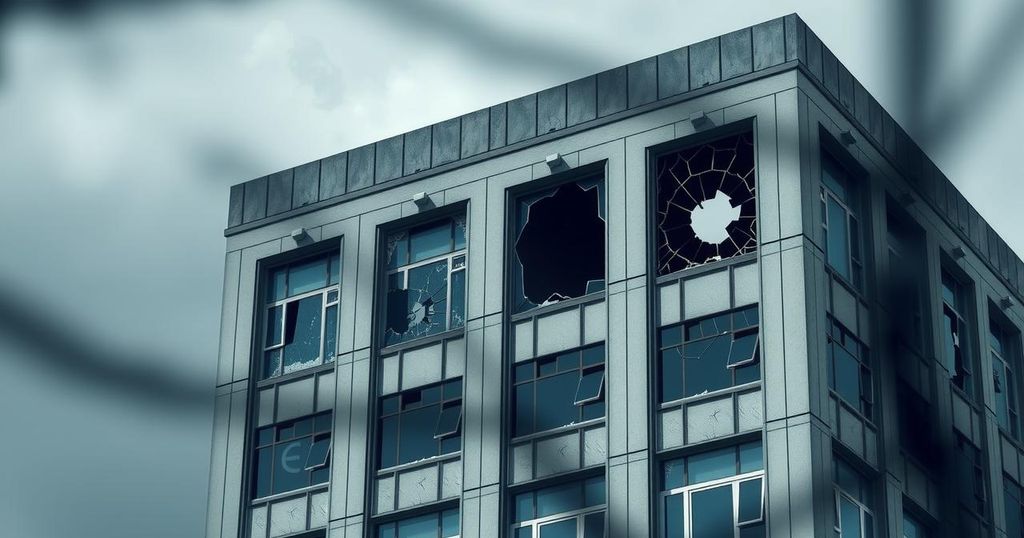Currently, over 20 Brazilian public companies are pursuing bankruptcy protection or restructuring amidst high interest rates. This trend is likely to escalate into 2025, with significant cases including Oi and Americanas. Analysis reveals rising average leverage among firms, indicating deepening financial distress, while regulatory factors shape the landscape for such companies. Experts forecast market consolidation as stronger firms pursue acquisitions of weaker ones amidst the crisis.
As of now, over 20 publicly traded companies in Brazil are seeking bankruptcy protection or are engaged in out-of-court restructuring, with expectations for this number to rise in 2025 due to mounting debt pressures amidst elevated interest rates. Experts foresee another unprecedented year for corporate financial distress in the nation, citing recent cases involving notable firms such as Bombril and Agrogalaxy.
Telecom giant Oi has recently filed for bankruptcy protection for the second time, and retailer Americanas is undergoing court proceedings following the exposure of a significant accounting scandal. Publicly listed companies typically attract more attention in such cases due to their substantial debts and obligatory financial transparency, which also illuminates challenges faced by smaller enterprises.
A recent analysis by Valor Data of 52 companies listed on Brazil’s Ibovespa index indicates that the average leverage among these firms has risen from 1.47 to 1.64 times. Fabiana Solano from Felsberg Advogados emphasized that the ongoing financial crisis is adversely affecting even larger companies, pointing out the immediate repercussions of high interest rates and global volatility on business operations.
OSX, a shipbuilding firm controlled by Eike Batista, has also entered bankruptcy protection for the second time, while the energy company Light has been active in restructuring since 2023. Additionally, Teka, a textile producer, has been under bankruptcy protection for over a decade and recently had its liquidation order confirmed.
The substantial number of bankruptcies could be even higher if not for firms like Azul Airlines and Infracommerce, which have successfully negotiated debt restructures rather than proceeding into formal bankruptcy. Other businesses, including Aeris and Viveo, are in discussions with creditors to avoid severe financial measures.
Despite better credit access available to public companies, the equity market is currently stagnant, reflecting investor reluctance. The only anticipated stock offering in upcoming months is from Caixa Seguridade, primarily prompted by compliance with liquidity regulations established by B3.
Regulatory implications signify that publicly traded entities in bankruptcy protection are excluded from B3’s theoretical indexes, though their shares may still be traded, a rule enacted over a decade ago after the X Group collapse. Roberto Zarour of Lefosse Advogados highlighted the requirement for public firms to maintain disclosure obligations, which complicates sensitive negotiations.
Marcelo Ricupero, also from Lefosse Advogados, remarked on the growing prevalence of bankruptcy amongst listed firms, indicating that the situation reflects a broader economic crisis affecting all companies. The struggle of publicly traded firms underscores the challenges faced by smaller businesses that are increasingly burdened by high-interest debts.
Professional Laura Bumachar noted an accumulation of debt across multiple firms and projected worsening conditions for 2026, suggesting a new wave of bankruptcy filings on the horizon. Ms. Solano speculated that a significant outcome of the financial crisis could be greater market consolidation as financially robust companies pursue mergers and acquisitions of struggling counterparts.
Statements from Light noted that their restructuring plan was approved in May 2024, expressing growing creditor interest in converting debt to equity. Azul has reiterated its recent successful creditor agreements, indicating improved cash flow and reduced leverage. Similarly, Aeris confirmed the disclosure of its financial negotiations, emphasizing their exclusion from bankruptcy discussions.
Companies like Teka and Infracommerce have indicated ongoing strategies for maintaining operations while addressing financial restructuring needs. Teka’s liquidation will ensure continued operations amidst shareholder discontent, and Infracommerce’s plan aims at altering capital structures to enhance financial stability. Notably, comments from several companies including Agrogalaxy and Americanas remain unavailable amid the ongoing turmoil.
In summary, Brazil’s corporate landscape is witnessing a notable increase in publicly traded companies seeking bankruptcy protection or restructuring, primarily driven by high interest rates and significant debt burdens. The trend signals an impending rise in financial distress cases as firms navigate these challenging economic conditions. High leverage levels among public companies further indicate widespread financial pressure, suggesting that both major and smaller enterprises may face a precarious future, leading to potential mergers and acquisitions to optimize market consolidation. As the situation evolves, regulatory and market implications remain vital areas to observe for stakeholders involved in the Brazilian economy.
Original Source: valorinternational.globo.com






